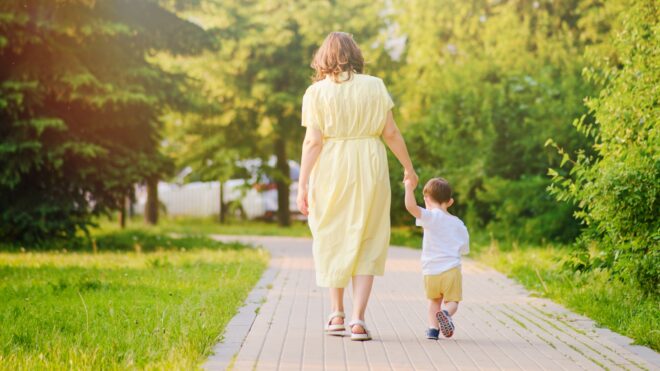
For months now, we've been talking about how soon a coronavirus vaccine might be ready. Right now, four promising vaccine trials are underway, with several recently entering their third phase. In the best case scenario, a vaccine could be ready by the end of the year, infectious disease expert Dr. Anthony Fauci said on Wednesday. But even then, it "may take some time" before it becomes widely available to the public, he noted.
The possibility of this has been exciting to some, but worrisome to others — especially parents who may waver on whether a vaccine created in such haste is safe for children. And, according to a new report by NBC News, some are worried what will happen if schools begin to require it in order to return.
Many parents have not been shy in voicing their fears of a COVID-19 vaccine.
Michelle Vargas of Granite City, Illinois, is one of them.
NBC reports that Vargas has always vaccinated her 10-year-old daughter, Madison, but when it comes to the coronavirus vaccine, she plans to wait.
"There is no way in hell I would be playing politics with my daughter's health and safety," said Vargas, 36, who works as an online fitness instructor.
It's not that she doesn't understand the severity of the pandemic — it's that she simply doesn't trust a vaccine that's been pushed through at warp speed.
"I understand that time is of the essence and a lot of people want to get on with their lives," she said. "But any time anything is rushed, integrity goes out the window."
While that may sound extreme, she's far from alone.
In fact, experts say that the US is headed for an unprecedented new wave of vaccine hesitancy in the months ahead — and no, it's not going to be just from the typical anti-vaxxer set.
Just like practically everything else in the US, the coronavirus pandemic has turned political. And for many people, a distrust in the vaccine is rolled right into their distrust for the government.
"You've got anti-vaxxers who are protesting along with libertarians and anti-government people and people who don't trust science or politicians. It's not a monolithic group," Dr. Howard Markel, a pediatrician who is director of the Center for the History of Medicine at the University of Michigan, told NBC. "I don't know how it's going to roll out, but it's not going to be pretty."
Many are also worried that schools could make the vaccine mandatory.
It wouldn't be that far-fetched, after all.
Currently, parents in most states need to obtain religious or medical exemptions in order for their child to attend a public school without receiving all of their vaccinations. But some states have begun to clamp down on this — like New York, which voted to end religious exemptions last year following a measles outbreak.
Now, experts say it's certainly probable that a coronavirus vaccine will be mandatory in schools, too, given how deadly the virus has been.
There's one major caveat, though.
The vaccine trials we've been talking about for months? They've only involved adults. So far, no major trials have been conducted on children, and likely won't be for some time, until safety risks can be assessed.
That news may be music to some parents' ears, who merely want to put some time in between the vaccine's approval and their child's immunization. But health officials worry that this could prolong the pandemic even more, since children will take even longer to reach immunity.
"Right now I'm pretty worried that we won't have a vaccine available for kids by the start of next school year," Dr. Evan Anderson, a pediatrician at Children’s Healthcare of Atlanta and a professor at the Emory University School of Medicine, told The New York Times this week.
For now, experts urge parents to take a deep breath.
As politically charged as this pandemic has been, doctors and scientists want to remind the public that any vaccine that comes to market will have been rigorously tested first. And all of this skepticism and public debate has only served to cast doubt on our scientific process.
"I don't think we can make a decision one way or the other until these trials are finished and we have the data in front of us," Dr. Yvonne "Bonnie" Maldonado, a professor of pediatrics, epidemiology and population health at the Stanford University School of Medicine, told NBC. "But I think it's even more important to emphasize that we have a lot of confidence in the vaccine development structure in the US and elsewhere, and you really see that the process seems to be working well so far."
Maldonado, along with other experts who spoke with the outlet, urged parents to speak with their pediatrician and other trusted health care providers about the vaccine. And, above all, they should wait until one is approved (and we know more about it) to make a sound decision.
"Once we do have a safe and reliable vaccine, it's really incumbent on school districts and public health departments to provide information," said Brian Schwartz, a school law attorney and an adjunct professor of education law at the University of Illinois Springfield. "What we want to do is certainly maximize the number of children who receive the vaccine, which will, in turn, help build herd immunity for those kids who aren't vaccinated or can't be vaccinated."




